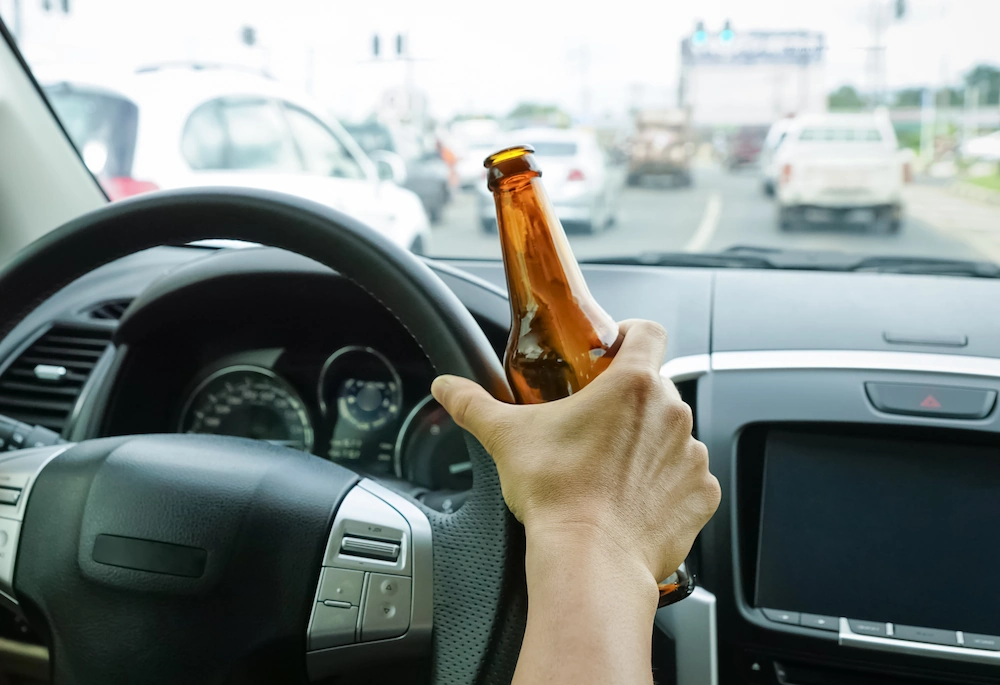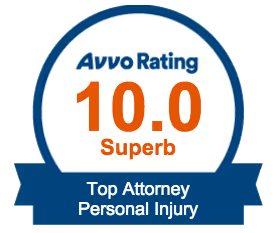The Turnbull Edge: what gives our criminal defense attorneys in Houston an advantage
Most DWI attorneys bring credentials to the table, but Ned Turnbull brings something far rarer: knowledge of the criminal justice system from every angle. His perspective as a former State District Court Judge and former Chief Prosecutor fundamentally changes how we build your defense.
- Insider knowledge on multiple fronts. Ned Turnbull has been the judge examining evidence and the prosecutor building cases. He knows exactly what arguments will persuade a judge and which ones won't move the needle in the courtroom. He's familiar with the prosecutorial playbook because he helped shape it. This dual-perspective background means we don't just react to the State's case — we anticipate it, dismantle it, and uncover its weaknesses before trial ever happens.
- Greater Houston court expertise. Houston's court system is massive and complex. Different divisions handle cases differently. Different judges have different priorities. Turnbull Legal Group has tried cases throughout Harris County and built comprehensive knowledge of whoever is sitting across the bench. We know when judges will be fair, when they’ll be harsh, and when they’ll listen to reason. That institutional knowledge isn't trivial — it shapes strategy at every stage of your case.
- Trial-tested in the highest-stakes cases. Ned Turnbull has tried over 200 felony jury trials and is qualified as counsel in death penalty cases. This means DWI cases — while just as serious — won’t shake us. We've defended people facing the most severe criminal charges Texas law allows. We bring composure, experience, and tactical mastery to every case that comes through our door.
Statistics for DWI in Houston and Texas
Houston has a DWI problem; the city proper saw 2,113 DWI-related crashes in 2024 alone. Because there are so many DWI arrests made in Houston and Texas at large (nearly 340 DUI arrests made for every 100,000 licensed drivers in Texas), courts in Houston have developed efficient systems for processing DWI cases, which means some defenses might now work as well as they might in other jurisdictions.
What the statistics don't capture is the human reality behind each arrest. Every DWI case represents someone's job at risk, someone's driving privileges on the line, someone's future uncertain. The legal system may treat these cases as routine, but your case is anything but routine to you.
This is exactly why local experience matters. Houston prosecutors know what evidence tends to convince judges. The judges know the prosecutors and what they typically pursue. There's an established rhythm and expectation in Harris County DWI cases — and an attorney unfamiliar with that ecosystem will operate at a significant disadvantage. You don’t just need someone who knows the law; you need someone who has decades of trial experience in Harris County, like Turnbull Legal Group.
Types of DWI charges we defend
Our DWI defense team is prepared to represent clients facing any type of DWI charge in Harris County and Greater Houston. Whether you're in downtown Houston, the suburbs, or anywhere across the Greater Houston area, we have the experience to fight for you.
First DWI Offense
A first DWI conviction carries serious penalties in Texas: potential jail time, substantial fines, and mandatory driver's license suspension. But a first offense doesn't automatically mean conviction or jail time. Many first-time offenders qualify for deferred adjudication programs that allow the case to be dismissed if you successfully complete probation. We fight for those options while simultaneously protecting your driving privileges through the administrative license revocation process. Our goal is helping you move forward without a permanent DWI conviction hanging over your future.
Second DWI Offense
The prosecution's approach shifts dramatically for second DWIs in Texas. They're more aggressive, more skeptical of mitigation arguments, and judges become considerably less sympathetic. The penalties increase substantially — longer jail sentences, higher fines, mandatory ignition interlock devices. You need an attorney who knows how to handle escalated prosecutorial pressure and counter it with proven strategies developed through years of trial practice.
Third DWI Offense
In Texas, a third DWI automatically becomes a felony charge — no exceptions, no discretion. You're now facing potential prison time measured in years. Felony DWI requires aggressive, experienced felony trial counsel. We handle these serious cases with the intensity they demand, conducting thorough investigations and challenging every element of the prosecution's case. Felony DWI is not the time to learn on the job; it's the time to have someone with extensive felony trial experience in your corner.
Felony DWI
Several circumstances can elevate a DWI to felony level even for first or second offenses: prior convictions, accidents involving property or injuries, or having a child under 15 in the vehicle. Felony DWI charges demand immediate action. We begin investigating the moment you're arrested, securing evidence and identifying weaknesses in the State's case before prosecutors have time to strengthen it. The stakes are too high for anything less than aggressive, experienced representation.
Commercial DWI (CDL DWI)
For commercial drivers, a DWI isn't just a legal issue — it's a career catastrophe. A CDL DWI conviction means mandatory license suspension, which means job loss and potential blacklisting from the trucking industry. Beyond the criminal consequences, you're looking at financial devastation. We understand what's really at stake, and our strategy protects both your freedom and your livelihood using every available resource at our disposal.
DWI with a Child Passenger
DWI with a child passenger is automatically elevated to felony status. Beyond the legal consequences, prosecutors and judges evaluate these cases through the lens of child endangerment and parental responsibility. The court system views these cases as involving a breach of trust, which shapes how aggressively charges are pursued and how judges approach sentencing. We defend you against both the criminal charges and the implicit moral judgment embedded in these prosecutions.
Underage DWI (DUI)
Texas has a zero tolerance law for any detectable alcohol in drivers under 21. This means young people face stricter standards for intoxication than adults, and substantially harsher collateral consequences. A DWI/DUI can derail college plans, eliminate financial aid eligibility, and create employment obstacles that persist for years. For young drivers, we work to minimize collateral damage while fighting the charges themselves, because getting your future back on track is part of our mission.
Learn more about DWI vs DUI in Texas
DWI with Drugs
Drug-based DWI charges present unique challenges compared to alcohol cases. The evidence is often more subjective — based on officer observations and dated sobriety tests rather than slightly-more-objective breath or blood alcohol measurements. Drug recognition expert evaluations can be questionable, and blood test interpretation about whether a drug actually caused impairment is often debatable. We challenge the subjective science and demand proof that goes beyond speculation or officer opinion.
Intoxication Assault
When a DWI results in injury to another person, the charge becomes aggravated, and is called intoxication assault. Prosecution becomes aggressive, and victim involvement frequently intensifies courtroom pressure and judicial skepticism. These cases require exhaustive investigation into causation, accident circumstances, and the actual connection between intoxication and injury. We defend these charges with the skill and intensity they demand.
Intoxication Manslaughter
This is the most severe DWI-related charge in Texas: a felony carrying 2–20 years of potential prison time. These cases demand exhaustive investigation, expert testimony, and courtroom skill at the highest level. We treat these cases with appropriate gravity, working to either disprove guilt or negotiate the most favorable resolution possible under extremely difficult circumstances.
Additionally, if you’re looking for a Bryan DWI lawyer, a Conroe DWI lawyer, or an attorney in surrounding areas like Galveston or Fort Bend County, Turnbull Legal Group is here to help.
How do you get a DWI dismissed in Texas?
No matter the circumstances, your DWI case is never automatically lost. Breathalyzers and blood tests aren't infallible. Police officers make procedural errors. Prosecutors sometimes build cases on shaky foundations. Our job is to find those weaknesses and shine a light on them on your behalf.
Challenging the initial traffic stop
Every DWI case begins with a traffic stop. We carefully examine whether the police officer had legal justification for pulling you over in the first place. Did they have reasonable suspicion to suspect DWI? Did they observe actual traffic violations or driving patterns consistent with impairment? Many DWI cases are won or lost at this exact stage — if the stop was unlawful or unsupported by reasonable suspicion, the entire case can collapse. We investigate the stop with the same intensity that prosecutors investigate the impairment allegations.
Dissecting probable cause and arrest justification
A legal traffic stop doesn't automatically give police the right to arrest you for DWI. We examine whether the officer actually had probable cause to believe you were intoxicated. We review field notes, body camera footage, and the officer's documented observations. We look for contradictions between what the officer wrote and what video evidence actually shows. Weak probable cause creates opportunities for dismissal through pre-trial motions.
Exposing field sobriety test limitations
Field sobriety tests (the walk-and-turn, one-leg stand, horizontal gaze nystagmus) are presented as scientific evaluations, but are actually highly subjective assessments not based on solid modern science. Medical conditions, footwear, road surface conditions, lighting, weather, and officer bias all significantly impact performance. We challenge the reliability of these tests and question whether they actually prove impairment or simply prove the officer was watching closely. Test administration errors are remarkably common — and we know how to expose them.
Challenging breath and blood test evidence
Similarly, breathalyzers and blood tests are presented as objective scientific proof, but they're subject to countless types of potential errors. We examine calibration records, maintenance logs, technician qualifications and training, and testing procedures. Chain of custody issues, improper evidence storage, procedural violations, and operator error can render test results inadmissible. We've successfully challenged tests that prosecutors thought were bulletproof.
Negotiating with strength and finding resolution
Not every DWI case needs to go to trial, and not every case should result in a conviction. We evaluate the strength of the prosecution's evidence and negotiate strategically with prosecutors in Greater Houston. Sometimes dismissal or significant charge reduction is possible before trial through skilled negotiation. We weigh every available option and present you with a realistic assessment, so you can always make an informed decision about your case.
Remember: Every DWI case is unique, and the most effective defense strategy will depend on your specific circumstances. Turnbull Legal Group's DWI attorneys will thoroughly investigate your case to identify any weaknesses in the prosecution's evidence and build a strong defense on your behalf.
What should I do if I’m facing DWI charges in Houston?
The moments immediately following a DWI arrest are some of the most important to your case. Your decisions in those critical minutes can significantly impact your ultimate outcome. Understanding your rights and acting decisively can help a lot, but no matter the circumstances, if you haven’t been convicted, there’s still hope.
From the initial stop until your case is resolved, the following are true:
You have the right to refuse sobriety tests.
You have the legal right to refuse field sobriety tests. Understand, however, that officers may still arrest you based on their suspicion of impairment even without the test results. Refusing these tests won't prevent an arrest if the officer believes you're intoxicated, but it does eliminate evidence that prosecutors can use against you in court.
Stay calm, respectful, and firm about your constitutional rights.
Cooperation with law enforcement is important — keep your hands visible, follow instructions, and provide your license and insurance when asked. Cooperation does not mean volunteering information or engaging in conversation designed to establish impairment. Remain polite and professional, but firmly assert your right to remain silent. Avoid sudden movements or defensive behavior that might escalate the situation. Respect the officers, but protect yourself.
Exercise your right to remain silent. We mean it.
Anything you say will be used against you in court. The officer will ask where you're coming from, where you're going, and how much you've had to drink. They’ll do it like they’re your friend, but it’s all designed to establish impairment. Don't engage with these questions. Politely but clearly state: "I would like to speak with my attorney." Then stop talking. Don't explain, don't defend, don't try to negotiate your way out of the situation. Silence is your strongest protection.
Call the best DWI lawyer in Houston as quickly as possible.
When you have access to a phone, call a trusted DWI lawyer in Houston. Early intervention will help your attorney preserve evidence, request critical recordings, and protect your rights before statements are finalized or procedures are completed. The sooner a quality lawyer gets involved, the better they can protect your interests. Time is essential in DWI defense.
Turnbull makes the Texas DWI laws, and your next move, clear
When you hire Turnbull Legal Group, we’re committed to your full understanding of the Texas DWI laws and legal process, the specific penalties you're facing, and your realistic options moving forward. We break down confusing legal terminology and answer every question honestly and transparently.
What happens after your consultation
We don’t just take your case — we help you take control of your future. Here’s what you can expect after Turnbull begins working for you.
ALR hearings and the 15-day deadline: protect your license
In Texas, you only have 15 days from the date of your arrest to request an Administrative License Revocation hearing. This is probably the most important deadline in your entire DWI case.
After a DWI arrest in Texas, your driver's license will be automatically suspended if you don't act within a specific timeframe. You have exactly 15 days from the date of your arrest to request an ALR hearing. Miss this deadline, and you lose your right to challenge the suspension. Your DWI license suspension in Texas becomes automatic and final.
Our Houston DWI lawyers understand the urgency and the real-world impact of this deadline. Your driver's license isn't just a piece of plastic — it's your ability to work, to take care of your family, to maintain your independence. We handle this deadline as the emergency it truly is. We request your ALR hearing immediately and fight aggressively to protect your driving privileges while we defend you on the DWI charges themselves.
DWI penalties in Texas: what you’re up against
DWI convictions in Texas carry serious consequences that increase dramatically with prior offenses and aggravating circumstances. The specific DWI penalties you’ll face depend on whether you have previous convictions, your BAC level at arrest, and the specific circumstances of your case.
Enhanced penalties for aggravating circumstances:
Judges in Houston often impose additional penalties that can extend consequences for years beyond sentencing:
- Mandatory DWI education and treatment programs
- Court-ordered community service (often 100+ hours)
- Ignition interlock device installation on your vehicle (prevents starting if alcohol is detected)
- Probation lasting 2 – 10 years, depending on the offense
- Dramatically increased auto insurance premiums, often for years post-conviction
- Professional license revocation or suspension
- Permanent criminal record affecting employment, housing, and background checks
These penalties are what is possible under Texas law, but they are not at all inevitable. If you or a loved one is facing DWI charges and has yet to be convicted, an experienced DWI attorney can still help you protect your future.
Need a DWI attorney in Houston? Put a former judge in your corner.
If you’re looking for a DWI attorney in Houston, look no further. The trial-tested Houston criminal defense lawyers at Turnbull Legal Group know Greater Houston courts, understand how the system actually works, and are ready to fight for your freedom and your future. Ned Turnbull has spent over 25 years building that knowledge. He's not learning on your case; he's deploying decades of experience the moment he takes it.
Uncertain about your next move? These resources can help guide your thinking:
- 10 Questions You Should Ask a Texas Criminal Defense Attorney Before Hiring
- The Ultimate Guide to Hiring a Texas DWI Attorney
But here's the reality: every day you wait is a day closer to that 15-day ALR deadline. Call Turnbull Legal Group today at (832) 314-3232 or get in touch with us online. We'll evaluate your case, answer your questions, and show you exactly what your defense looks like. Your future depends on the next move you make — we can help you make it the right one.
Don't Wait, Get Legal Help: Protect Your Rights
Facing DWI charges can be overwhelming, but you do not have to face them alone. We can mount a robust defense and protect your future with every resource we have. Contact Turnbull Legal Group for a free consultation to discuss your case.






























